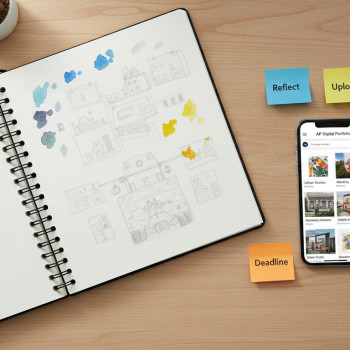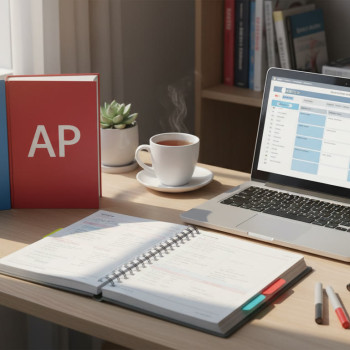When Tradition Meets Test Day: Why This Matters
There’s something magical about festival lights, the smell of a special family dish, and the chaos of loved ones under one roof. Those traditions are the heartbeat of family life. Yet for many families of high schoolers, that heartbeat starts racing at the same time AP exam season draws near — and suddenly celebration and preparation collide.
This guide is written for parents who want both: to honor family traditions and to help their child perform at their best on Advanced Placement (AP) exams. You’ll find realistic planning strategies, sample schedules, ways to support your teen emotionally, and practical tools you can use right away. I’ll also point out where personalized tutoring — like Sparkl’s 1-on-1 guidance, tailored study plans, and expert tutors with AI-driven insights — can fit naturally into your plan.
Start With Compassion: Set the Tone at Home
Begin with the simplest truth: your teen is more than a test score. When planning, lead with empathy. Stress, guilt, or ultimatums rarely motivate sustained effort; they erode focus. A calm, collaborative conversation is the best opening move.
Conversation Starters That Work
- “Which family traditions matter most to you this year?”
- “Which AP exams are you most worried about — and why?”
- “How can we shift our plans so you can study without missing everything?”
Invite your child to co-design the schedule. Ownership reduces resistance and increases follow-through.

Map the Calendar: Know Dates, Prioritize Events
Before you rearrange anything, make a clear calendar. List AP exam dates, festival days, travel plans, religious services, and key household events. When families see conflicts visually, tradeoffs become manageable instead of mysterious.
How to Prioritize
- Identify immovable dates (AP exam days and required family obligations).
- Mark low-effort traditions that can be shortened or rescheduled.
- Spot rituals that are restorative (keep these if they recharge your teen).
When in doubt, prioritize sleep and uninterrupted study blocks during the most intensive exam weeks. A single late-night party the week before an exam can cost more than an extra hour of study would gain.
Practical Scheduling: Build a Festival-Friendly Study Routine
A routine that anticipates festivities reduces last-minute panic. The goal is consistency with flexibility — steady habits that survive a family gathering.
Sample 4-Week Plan for an AP Exam That Falls Near a Holiday
| Week | Focus | Typical Student Goal | Family Action |
|---|---|---|---|
| Week 4 (Month Out) | Assessment and Plan | Complete a timed practice exam; identify weak areas | Set festival expectations; block study times on calendar |
| Week 3 | Targeted Practice | Three focused practice sessions on weak topics | Limit evening events to allow study nights |
| Week 2 | Consolidation | Review formula sheets, outlines, and common essay prompts | Shorten celebrations if possible; prioritize restful sleep |
| Exam Week | Light Review and Rest | One short review session per day; early nights | Quiet morning and travel plans that avoid rushed arrivals |
This table is a template — adapt timing based on how much time remains before the test and your teen’s pace.
Micro-Schedules for Festival Days
- Morning (60–90 minutes): Focused study — high-yield problems or flashcards.
- Afternoon: Family time and participation in key rituals.
- Evening (30–45 minutes): Light review or a calming walk to process information.
Short, focused study sprints protect momentum while honoring celebration. They keep the brain active without creating resentment.
Study Quality Over Quantity
Not all study is created equal. Two hours of scattered browsing of notes is less valuable than one hour of active, targeted practice. Teach — and model — efficient study techniques.
High-Impact Study Techniques
- Active Recall: Use flashcards or write answers from memory.
- Spaced Repetition: Revisit tough problems over increasing intervals.
- Timed Practice: Simulate the exam environment to build endurance.
- Interleaving: Mix problem types to enhance transfer between topics.
These techniques make shorter study sessions more productive — perfect for days with limited free time.
When to Bring in Extra Help: The Role of Personalized Tutoring
Not every student needs outside help, but many benefit from targeted support — especially when the calendar is tight. That’s where personalized tutoring comes in.
How Tailored Tutoring Helps During Festival Clashes
- 1-on-1 guidance targets specific weaknesses so study time isn’t wasted.
- Tailored study plans adapt to your family’s schedule and traditions.
- Expert tutors can provide techniques for efficiency that a busy household can’t replicate alone.
- AI-driven insights can highlight high-leverage topics and predict progress trends.
For example, if your teen reliably loses a half-day to travel for a holiday, a tutor can shift heavier practice to compact morning sessions and supply a prioritized checklist to use on the go. Sparkl’s personalized tutoring — including expert tutors and AI-driven recommendations — can be particularly useful because it blends human coaching with smart, targeted practice plans that respect family rhythms.

Travel, Sleep, and Nutrition: The Often-Overlooked Exam Factors
Even with the best study plan, logistical stress can undermine performance. Address travel, sleep, and nutrition proactively.
Travel Tips
- Plan travel so your teen arrives the night before the exam when possible.
- Carry a small “exam kit”: ID, pencils, permitted calculator, a watch, snacks, and water.
- Use travel time for light review (flashcards or a short outline), not cramming.
Sleep and Nutrition
- Prioritize consistent sleep in the week leading up to the exam — sleep consolidates memory.
- Avoid heavy meals right before bedtime and reduce sugar spikes that affect concentration.
- Pack balanced snacks on exam day: protein, complex carbs, and water.
Small, practical steps here often produce outsized improvements in focus and stamina.
Family Traditions That Support Study (Yes, They Exist)
Not every tradition must be sacrificed. Many can be reframed to support your teen’s preparation while keeping the spirit of the day.
Adaptable Traditions
- Quiet Rituals: Move noisy celebrations to later in the day after the student’s study blocks.
- Shortened Ceremonies: Keep the meaningful core of a tradition and streamline the extras.
- Study-Friendly Activities: Incorporate low-energy gatherings like shared reading, listening to traditional music, or a short neighborhood walk.
These small adjustments let everyone feel included while protecting essential preparation time.
Emotional Support: How to Talk So Teens Will Listen
Parents often oscillate between pressure and placation. The key is a steady, supportive voice that acknowledges feelings and offers practical help.
Language That Helps
- “I know this is a lot. Let’s figure it out together.”
- “You don’t have to give up the whole celebration — which part would help you most?”
- “If you’d like, we can find a tutor who can target exactly what you need in short sessions.”
Offer tangible support: bringing healthy meals, creating a quiet study space, or coordinating travel so your teen isn’t rushed. The practical acts often speak louder than the pep talks.
When Things Don’t Go As Planned
Despite the best plans, family life is unpredictable. If your teen misses a study block or stays up too late at a celebration, the response matters more than the misstep. Repair quickly and move forward.
Quick Recovery Strategies
- Short, focused review the next morning to restore momentum.
- Swap in an extra practice session on a less busy day rather than trying to cram.
- Reassure your teen and avoid magnifying the mistake — anxiety reduces performance.
Resilience — the ability to recover — is one of the most valuable meta-skills you can help your child build during AP season.
Measuring Progress Without Obsession
Track progress with purpose, not perfection. Use practice tests, timed sections, and quick daily checks — but avoid turning every metric into an emotional battleground.
Simple Tracking Table You Can Keep on the Fridge
| Date | Task | Minutes | Notes / Confidence |
|---|---|---|---|
| Apr 10 | Timed multiple-choice section | 55 | 70% correct; need practice on kinematics |
| Apr 12 | Free-response practice | 40 | Struggled with time; improved structure |
Keep notes brief and action-oriented: “Targeted topic for next session” or “Increase timed practice to 80 minutes.” This keeps the focus on improvement rather than labeling.
Case Study: A Family That Kept the Festival and the Exam
Consider Sam, a junior taking AP Biology whose exam fell two days after a major family festival. Sam and his parents used these steps:
- Mapped out all events and prioritized a full practice test three weeks before the exam.
- Reduced evening festival commitments to one special meal and a morning study sprint.
- Engaged a tutor for two 45-minute sessions the week of the festival to reinforce high-yield topics.
- Planned travel to arrive the day before the exam and created an exam kit and a quiet room to rest.
Result: Sam reported feeling calm and focused on test day and was able to enjoy the festival without guilt. The tutoring support — rapid, targeted, and respectful of family timing — made the difference between anxious cram sessions and confident review.
Final Checklist for Parents
- Create a visible calendar with AP dates and family events.
- Agree on a study plan with your teen and set reasonable boundaries for celebrations.
- Use short, active study sessions on busy days and reserve longer practice blocks for calmer days.
- Prioritize sleep, hydration, and balanced meals in the week before exams.
- Consider short-term personalized tutoring if your teen needs focused improvement; Sparkl’s tailored study plans and 1-on-1 tutors can be scheduled around family commitments.
- Keep conversations supportive and practical — repair quickly when plans slip.
Parting Thought: Hold Both Joy and Goals
Planning around festival and holiday clashes with AP exams isn’t an either/or proposition. With compassion, clear communication, and a few practical tools, families can preserve the rituals that matter and give students the focused preparation they need to succeed.
Remember: traditions nourish identity; exams open doors. When you plan with intention, you don’t have to choose one over the other — you can honor both.
If You Want a Helping Hand
If your family needs targeted, flexible support during a busy season, consider options that combine human expertise and smart planning. Personalized tutoring that offers 1-on-1 guidance, tailored study plans, and concise AI-driven insights can make study time more efficient and less stressful — leaving more room for the moments that matter.
Wishing your family peaceful celebrations and clear, confident test days.

















No Comments
Leave a comment Cancel